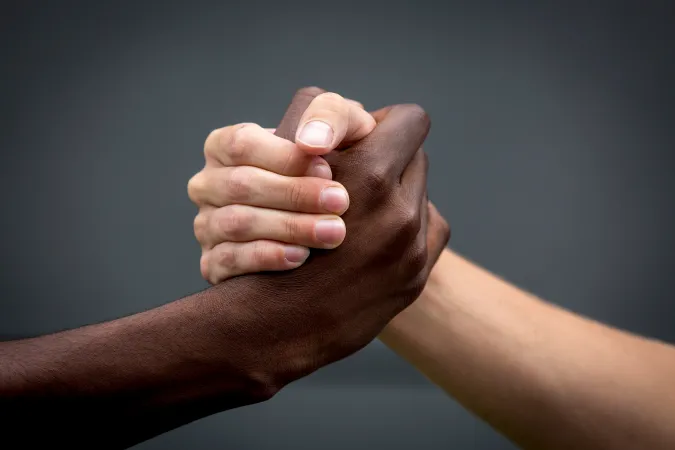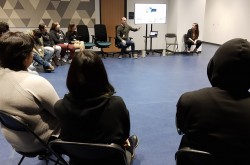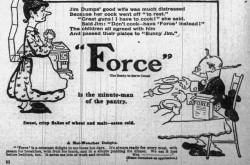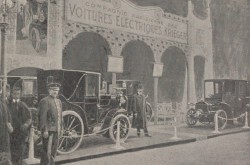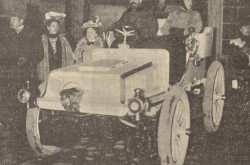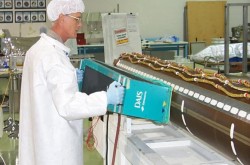Talking about racism: A conversation between colleagues

Last spring, the sad reality of racism dominated the news worldwide, particularly as it relates to police violence in the United States. In Canada, the spotlight on racial injustice prompted many individuals and organizations to reflect on inequities in their own backyards.
At Ingenium and its three museums — the Canada Agriculture and Food Museum, the Canada Aviation and Space Museum, and the Canada Science and Technology Museum — conversations around race have taken on a new sense of urgency. Access for all has been identified as a priority in the five-year strategic plan, with a goal to respect and include diverse voices and communities.
In June 2020, an Ingenium employee, Marika Eleazard Durandis, made a personal statement about racism at a meeting for all staff. Marika works with Melissa Gruber in the Public Affairs division. Following her presentation at the staff meeting, the two colleagues connected over Zoom to keep the conversation going.
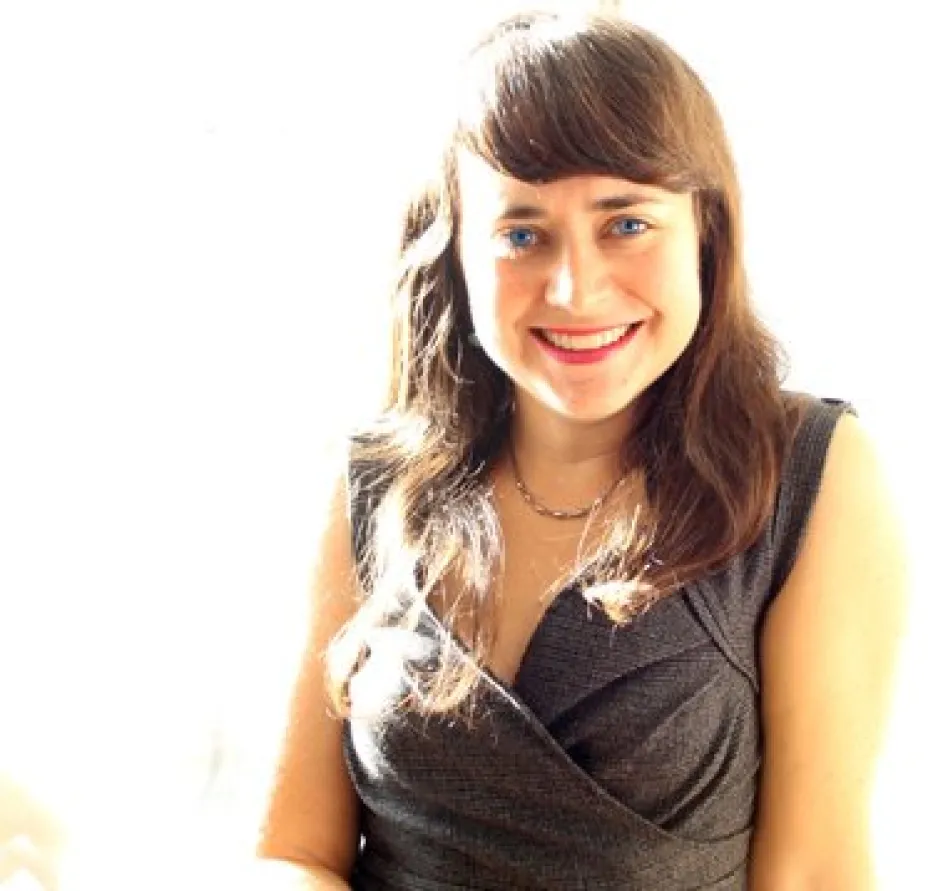
Melissa Gruber
Melissa Gruber (MG): We’ve worked together for two years. You run our corporate events — like the train move last summer and the STEAM Horizon Awards. It’s a challenging job and you make it look easy.
At an all-staff meeting last spring, you made a brave statement about racism. You touched on some things that made you proud to work here, as well as some things we need to do better. You also very generously offered to be a resource for people who have questions, or who are interested in talking about race. Would you tell me why you decided to make that statement?

Marika Eleazard Durandis
Marika Eleazard Durandis (MED): I had never co-hosted the all-staff meeting before. After I was asked, I started to wonder if I should say something in response to everything that was happening in the U.S. I debated on it for many days before the meeting. I was waiting to see if Ingenium would do something —but we didn’t react right away, which I can understand. But it’s one of the things that motivated me to speak. Although, I understand that as a corporation we need to think about the whole strategy and how to make the best statement.
When my manager asked if I could step in, I thought, “If I’m going to host the all-staff meeting and be on the camera as a Black person, I can’t not say anything at all.” I debated with my family. I didn’t want to sound like that Black girl who is taking advantage of the platform to prove a point.
MG: It must have felt like you were being brash.
MED: I thought about calling in sick that day. Then, it hit me.
If I’m feeling so uncomfortable and so afraid of what everyone would think, maybe that’s why other people aren’t saying anything. So I felt like as a Black person, I had a responsibility to show that I’m open to that conversation. I decided to make a statement to break the ice.
To acknowledge that we don’t know how to handle this. I don’t know how to handle this. I’m very uncomfortable. I’m sure you are uncomfortable too. But let’s figure it out together, because we can’t stay silent. So let’s talk about it. Of course, we can’t just talk, we also need to follow with concrete actions. But the first step is to talk about it.
MG: I didn’t think about how it put you in an awkward position, just to be a Black person in front of all of the staff while this is happening. It’s interesting that you felt there was pressure. I wouldn’t have thought about that.
MED: I thought a lot about the angle that I wanted to take. I didn’t want anyone to feel judged or pressured. But at the same time, I wanted to be honest and authentic, and not put my head in the sand. I was surprised by the response I received. I had no expectations, to be honest. I just wanted to share some thoughts with my colleagues, and invite all of us to think about racism and contribute to change according to our abilities. Because it is the responsibility of all of us to address racism. We all have our part to contribute. I was pleasantly surprised to get feedback from a lot of our colleagues.
MG: I thought you were very gracious. And it was very generous of you. Because it shouldn’t have to be your responsibility to start that conversation.
Shifting focus a little, well-meaning colleagues can say hurtful things when they are not aware of all the privileges they benefit from. As I have been learning more about my privilege, I realize that things I have said or done in the past may have been hurtful. And I’ve realized that the learning process will never be finished, so I may very well say hurtful things in future. I need to continue the learning process so I can continue to do better. What are some microaggressions — indirect, subtle, or unintentional acts of discrimination — that you commonly see in the workplace?
MED: One of the most common comments has to be, “When I look at you, I don’t see colour.” And I know that, for some people, they say it and mean it in a ‘’good’’ way. However, from the receiving end, when you say this, it is like saying, ‘’I don’t see you.’’ Because, hey! I am a Black woman. So there’s no way that you can tell me, ‘’When I look at you, I don’t see colour.’’ So please Melissa, don’t ever say this to a person of colour [laughing].
Another time, I received a comment at an airport, after presenting my Haitian passport. The airline clerk said, ‘’Wow, you are so different from most Haitians who come to this counter. You are so articulate and so polite. You are most definitely a credit to your race.’’ And the lady looked and smiled at me as if she was giving me the most extraordinary compliment.
A final example of a microaggression I experienced took place in a previous job. After I first started, I arrived late two days in a row. On the second day, my manager took me aside and said, “I know you have just come here from Haiti. I see that you arrived late two days in a row. You should know that here, time is money. It’s not like the Black countries.”
I thought, “First of all, you didn’t ask me why I’m late. I was waiting for the bus for 30 minutes and it didn’t come so I had to catch the next bus.” She was very nice when she was speaking to me, and she’s always been a very nice manager. We are still in touch now from time to time. So at the time, I wasn’t sure if it had to do with race, or if she was trying to help me understand that the culture in Canada is different. She could have thought that because I was young and had recently moved from Haiti, that I might not understand the culture. And it’s true that in Haiti we have a different approach to time. So that might be true.
I didn’t think of it as an issue of race at the time, but I believe that we still have to be mindful of these types of comments. Because for someone else, who might have heard these types of comments over and over, the effect could be different. That’s why they say microaggression — because of the repetition. When it happens over and over then you start asking yourself, “What is going on here? Why does that person keep making that same comment?”
Awareness is the main thing — being aware and mindful that a comment like this might hurt someone. This is why conversation is key. In an ideal world, you could say, “Hey, why would you assume that I’m late because of this? Do you want to know why I’m late?” And the manager could say, “I didn’t think my comment would make you feel that way.” And then you move on. But that’s the ideal world.
MG: And that’s a difficult conversation to have with your manager, especially if you are new to a job. It’s tricky because you want to understand that different cultures can be different, but you also don’t want to make assumptions about an entire group of people based on the colour of their skin. Would she have treated someone who was white the same way, or would she have asked why you were late first?
MED: Exactly. And this is where the issue of racism becomes relevant and important. As soon as we realize that our attitude towards a person or a group of people differs from our attitude towards another group, we must question ourselves about our motivations and reason behind them.
MG: I’m realizing that as I learn more, I’m going to understand that some things I’ve said may have hurt people and I didn’t know it. So I’m trying to learn as much as I can.
MED: For white people, yes, you are going to do your best to learn more, to understand more so you can be more aware. To learn and unlearn what to do, what to say. If we’re not practising that — being uncomfortable — within our circle, with our family, friends, and colleagues, then we can’t improve things. So we have to talk about it. And if you say something wrong — of course, we have to be careful not to hurt other people.
But we're all human. You can’t put that pressure on yourself — that you have to think about every single word that you’re going to say to a person of colour. It’s just not realistic. I may say something wrong to a white person as well. What’s important is to be considerate of the words we say and the actions we take, to understand that it is important to consider the feelings they can generate, to address them, to recognize them, to apologize when that’s needed. And to make the effort to learn more about each other’s experiences.
MG: Before we had this conversation, we both read the book, So You Want to Talk About Race by Ijeoma Oluo. I thought it was interesting that she wrote, “It’s about race if a person of colour thinks it’s about race.” Because then you aren’t trying to pick apart intentions or all the stuff that doesn’t matter. It’s about the impact that it has on that person and all of the other things that they have had to experience.
MED: Totally! She also wrote that having more empathy is important. This is the main issue when it comes to race.
Don’t ever say that someone is making a big deal out of nothing. You may think a comment was innocent and not understand why someone is reacting negatively. And maybe your comment was innocent. But that person may have had similar comments before that were hurtful, and that were meant to be racist. So you need to have empathy and acknowledge that. Try to learn from it, and see how you can avoid it in the future.
MG: It makes it less about you, too. You don’t have to think that you are a bad person that you made a comment that hurt someone. Instead, you can say “I made a comment. It hurt someone. It wasn’t intentional, but that was the impact and I don’t want to hurt someone again.”
MED: Exactly. And it’s important to talk about it with your colleagues. For example, Ingenium took the initiative to offer training at our all-staff meeting. It was an important first step, but it doesn’t stop here. It’s a small part of the picture. We would learn more if we had more informal opportunities to talk to each other as colleagues — at a meet and greet or a town hall, for example. We could invite racialized people to the table and have a conversation — like we’re doing right now. The training was interesting. But it’s not enough on its own.
MG: I was thinking of starting a book club where people could read books about race and come together to talk about them, maybe over lunchtime.
MED: That’s a great idea. I’m personally working at learning more about the situation of Indigenous people in Canada. As I was preparing my statement, I was thinking about how there are so many other groups that are marginalized that we need to stand up for. When I was in Haiti, I was on the board of an organization, la Société Haïtienne d’Aide aux Aveugles, that helps people with disabilities and people who are blind. I’ve always been interested in helping marginalized people. We all must do our part in these conversations. You can’t enjoy a neighbourhood if your neighbours aren’t happy. You will not be able to sleep well at night. It’s everybody’s problem.
MG: Something I’ve noticed is that I’m sometimes friendlier with people who look like me versus people who don’t. There are lots of Black kids at my daughter’s daycare, but I usually strike up conversations with the white parents when I drop her off. I realized that I need to make an effort to be friendly with the parents who don’t look like me too.
MED: And it does require an effort. It’s not easy. But it makes us better people, smarter people. You learn about other cultures, you eat the food. When we realize these things, we don’t need to beat ourselves up about it. But learn from it and ask ourselves, “What can I do to change that?” And then take action to change it.
MG: We don’t have a lot of people of colour on our staff. Some organizations say they don’t get a lot of applications from people of colour, and that’s why they have a predominantly Caucasian staff. I’ve read that part of the solution is to put more effort into outreach. If your organization is made up of a bunch of white people, you could be sending your calls for applications out to a bunch of white people. So I’m curious why you applied to work at Ingenium?
MED: I found the job on one of the big job posting websites, so I applied for it. I had really strong references and passed the interview. When I went to my first all-staff meeting a couple of years ago, everyone came out of the meeting room at the break. I looked around and it hit me: there weren’t many people of colour at the meeting. But that’s been the story of my life since I came here.
At Ingenium, we are a handful of people of colour. But at previous jobs that I’ve had in Canada, I was the only person. I used to say to myself: “I don’t understand. I’m probably not the smartest person to always get that one job. So…. why?” I’m pretty sure people of colour would be interested in applying to jobs at Ingenium. So why aren’t they better represented?
We should think about doing more outreach with job postings. But also, when I am in the museums and I look around — it’s mostly white people. Why don’t we have more people of colour visiting our museums? The museums are located in diverse communities, where the kids are looking for something to inspire them. Part of changing our society is making sure that these kids have access to these great places where they learn about history, they learn about innovation, about the people who came before them being inspired and exploring science.
Maybe we don’t see them because they are from poor neighbourhoods and they don’t have the capacity to visit the museum. Or they don’t know about it. Or maybe they don’t see themselves in our collections? How can we collect artifacts that shine a light on the many scientists and innovators from diverse backgrounds who have impacted our country’s history? Are we reaching people of colour with our advertising?
MG: We probably target the people who we know come to the museums, but that means that the same people who have always come will continue to come. That’s an interesting example of how the structure of what we do could be creating barriers for access.
MED: It’s a process. We feel the will within the corporation. Now we need to keep up the momentum and make sure that it’s present in everything that we do. It can be a lot of work to reach people of colour, people with disabilities and different groups. That’s because discrimination is systematic.
For example, I have uterine fibroids that have led to a serious iron deficiency. I go to the hospital monthly to get iron transfusions. Each time, I need to pay $95 for the iron and it’s not covered by insurance. I have a friend who needs to go twice per month. Uterine fibroids disproportionately affect Black women. So when it’s not covered by health insurance, that has an impact on the Black community. Kamala Harris is fighting for research and education on uterine fibroids in the United States. Lots of other therapies and medications are covered, but not this. Discrimination is built into the system. It’s a life or death situation; if you don’t get the treatment, you could die.
MG: I’m sorry, that’s awful. We have really good health insurance so it’s surprising that’s not covered.
MED: It’s a process. And it requires every person to do their part. Like I said in my statement, we may not feel like we can change the system, but we need to stand up when we see something wrong happening. That’s why white allies are important. Then it’s not just the person from a marginalized community trying to fight for their rights. More privileged people can also say, “I think this is wrong. This isn’t the way it’s supposed to be.”
MG: I’m still trying to wrap my brain around the most productive ways to take action. I’m reading a lot, and participating in the Indigenous Communities Relationships Working Group. I filled out the local police survey, and told them that I do not want the police harassing Black people in my neighbourhood. But it’s a small thing.
MED: It starts with the small things. It’s a lot of small things that add up to change.


